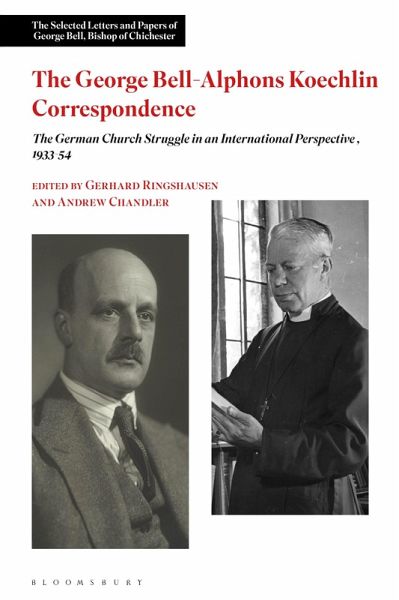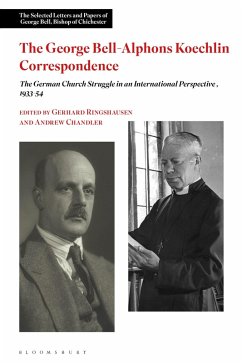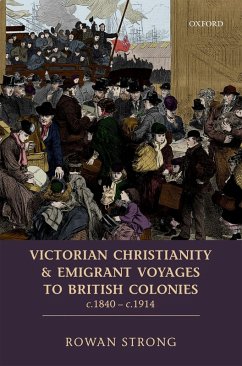
The George Bell-Alphons Koechlin Correspondence (eBook, ePUB)
The German Church Struggle in an International Perspective, 1933-1954
Redaktion: Chandler, Andrew; Ringshausen, Gerhard
Versandkostenfrei!
Sofort per Download lieferbar
70,95 €
inkl. MwSt.
Weitere Ausgaben:

PAYBACK Punkte
35 °P sammeln!
George Bell was one of the most significant British church leaders of the mid-20th century and in many ways he came to define the involvement of British church people with the issues which arose from the Third Reich. The George Bell-Alphons Koechlin Correspondence, 1933-54 presents the extensive correspondence between Bell and a leading Swiss pastor and President of the Basel Church Council, Alphons Koechlin. The letters of Bell and Koechlin make an important contribution to our understanding of ways in which the unfolding history of the Hitler regime was interpreted in an international contex...
George Bell was one of the most significant British church leaders of the mid-20th century and in many ways he came to define the involvement of British church people with the issues which arose from the Third Reich. The George Bell-Alphons Koechlin Correspondence, 1933-54 presents the extensive correspondence between Bell and a leading Swiss pastor and President of the Basel Church Council, Alphons Koechlin. The letters of Bell and Koechlin make an important contribution to our understanding of ways in which the unfolding history of the Hitler regime was interpreted in an international context from its earliest months in 1933 to its final destruction in 1945. In presenting the letters, this book captures a sustained meeting of European minds, thinking together in the midst of a crisis that was altering the conventional perimeters of politics and religion, and by degrees changing the life of the whole European continent - and drawing British politics into its vortex. This volume provides for the first time all the letters exchanged between Bell and Koechlin in their original English, with full scholarly apparatus and connected material. It contributes valuably to the historiography of the Third Reich and develops our understanding of Nazism not simply as an episode in German history, but as a fundamental crisis in international politics, religion and society.













